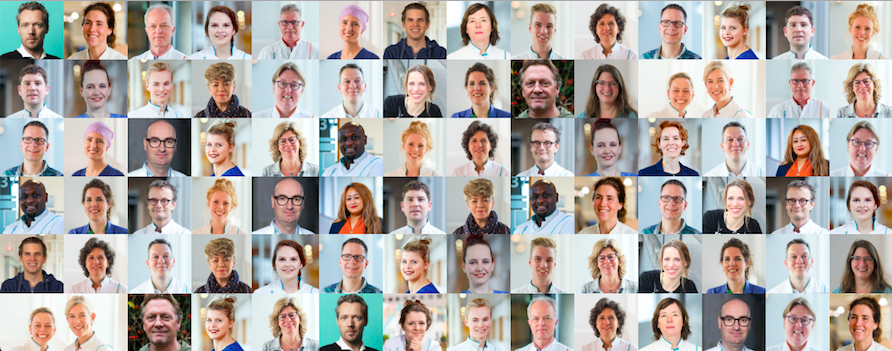PhD candidate ‘Living on the edge: tight control of WISP1 expression is key for cartilage homeostasis’
PhD candidate ‘Living on the edge: tight control of WISP1 expression is key for cartilage homeostasis’
You cannot apply for this job anymore (deadline was 31 Jan 2018).
Browse the current job offers or choose an item in the top navigation above.
Job description
Osteoarthritis (OA) is the most common joint disease, with pain and joint stiffness as the most important clinical symptoms. One of the central hallmarks of the disease is the degradation of the articular cartilage. A substantial genetic component in the development of the disease has been proven, although the exact molecular and cellular processes underlying OA remain to be unsolved.
The aim of the current project, recently granted by the Dutch Arthritis Foundation, is to unravel the role of WISP1, part of the canonical Wnt signaling pathway, in the integrity of articular cartilage. The effect of loading on the epigenetic regulation of WISP1 expression and downstream targets of WISP1 will be evaluated in chondrocytes. Moreover, the association of a single-nucleotide polymorphism (SNP) that is relevant to the methylation, and thus expression, of WISP1 and OA susceptibility will be studied. Finally, these studies will be further expanded to in vivo studies using transgenic mice with varying amounts of WISP1, where the effects of running on the integrity of the articular cartilage will be studied.
We offer an interesting temporary research position in a dynamic, multidisciplinary and international environment. Part of the work will be performed in the Experimental Rheumatology lab in Nijmegen and part will be performed at the Molecular Epidemiology section in Leiden.
Specifications
- max. 36 hours per week
- Nijmegen View on Google Maps
Requirements
- A university degree (MSc or equivalent) in medical biology or biomedical sciences with an interest in immunology, pathology and epigenetics;
- Experience with handling DNA and RNA, epigenetics, histology, culturing techniques and animal work (article 9) is preferred;
- Excellent communication skills in spoken and written English;
- Capable of working independently as well as in a multi-disciplinary team;
- You recognise yourself in the Radboud way of working.
Conditions of employment
Fixed-term contract: 1 year with a possible extension.
Salary is € 2.279 gross per month in the first year up to a maximum of € 2.919 gross per month in the last fourth year, plus additional vacation bonus (8% per year) and end of year payments (8.3% per year)
Upon commencement of employment we require a certificate of conduct (Verklaring Omtrent het Gedrag, VOG). Radboud university medical center’s HR Department will apply for this certificate on your behalf
Employer
Radboudumc (university medical center)
Radboudumc strives to be a leading developer of sustainable, innovative and affordable healthcare to improve the health and wellbeing of people and society in the Netherlands and beyond. This is the core of our mission: To have a significant impact on healthcare. To get a better picture of what this entails, check out our strategy film.
Our key strength is medical life-sciences and clinical practice, with an impressive infrastructure comprising state-of-the-art technology platforms and (translational) research facilities. The Radboudumc is therefore uniquely positioned in the emerging Euregio and Dutch healthcare infrastructure to play a leading role in the new healthcare paradigm of prediction, prevention and personalised medicine.
The Radboudumc focuses on scientific health challenges of today, with an eye on emerging diseases of the future.
Read more about what it means to work at Radboudumc and how you can do your part.
Department
Both the research group in Nijmegen and Leiden participate in worldwide collaborative efforts to elucidate the molecular mechanisms behind the OA etiology. Research at Molecular Epidemiology in general is aimed at the identification of molecular profiles and biological pathways affecting complex human traits and diseases, OA is one of the 3 main lines of research within the section. The OA research within the section has an outstanding track record in the OA research field which is reflected by a recently granted VICI project combined with the number of scientific (co)- publications with many OA research groups inside and outside the LUMC and the Netherlands.
The research group at the Experimental Rheumatology lab in Nijmegen has gained a worldwide reputation in basic and clinical rheumatology research with a track record of >500 peer-reviewed scientific papers. The department takes part in the research program of the Radboud Institute for Molecular Life Sciences (RIMLS). The RIMLS trains students and PhD candidatess and conducts research in medical research.
Specifications
- PhD
- Natural sciences; Health
- max. 36 hours per week
- University graduate
:fill(white)/logos/umcr-en-wide.png)
